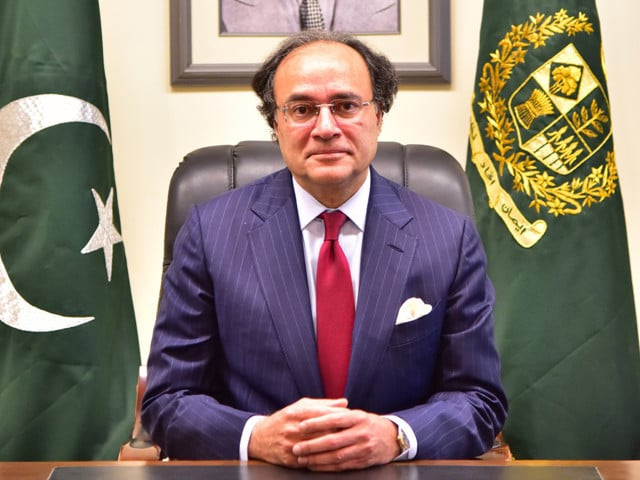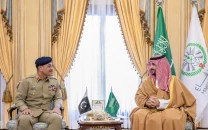No strategic SOEs, minister pushes for privatization
Aurangzeb reiterates the government’s resolve to bring retailers into tax net

Finance Minister Muhammad Aurangzeb dismissed the concept of 'strategic' state-owned enterprises (SOEs), advocating for broad privatisation strategy and reiterating the government's commitment to tax retailers.
Aurangzeb's statements came during a pre-budget conference in Lahore, following Deputy Prime Minister Ishaq Dar's announcement that the PML-N government would narrow its business scope to strategic and essential SOEs, with a plan to reduce their number after thorough scrutiny.
Chairing the Cabinet Committee on Privatisation (CCoP) meeting, also attended by the finance minister, Dar had said privatisation of loss-making SOEs was a priority for the government.
The meeting had noted that 40 SOEs were currently categorised as strategic but respective ministries would submit their details to the Cabinet Committee on State-Owned Enterprises (CCoSOE) and the CCoSOE would determine the status of the SOEs to be categorised as strategic or essential entities.
However, speaking at the conference, the minister said there was no such as a strategic SOE.
Commenting on concerns regarding the privatisation of the Pakistan International Airlines (PIA) and the Islamabad Airport, the minister said the government was not just looking at foreign investors. “There are local and foreign investors who are bidding [for the SOEs],” he said.
He said if this country had to come out of difficulties, the private sector would have to step forward.
In reference to expanding the tax net, he stated that while the government was prepared to engage in discussions with retailers, it remained steadfast in its commitment to bringing them into the tax net.
“Our retailer brothers who are currently outside the tax net should voluntarily enter the tax net. We will provide them with all kinds of facilities. People think that when they come into the net, they will be unnecessarily harassed. They are wrong: we will rather facilitate them.”
He said in April, retailers were given the facility of registration on a voluntary basis, but even today they resist coming into the tax net.
Commenting on a fresh International Monetary Fund (IMF) loan programme, he said a larger and longer programme was needed to bring “permanence in macroeconomic stability and structural reforms”. He said currently, cash worth eight to ten trillion rupees was circulating in the market in Pakistan.
“If structural changes are not made in taxes in the 24th IMF programme, then we will have to go to the 25th programme and we will have to change everything.
“The IMF team has come to Pakistan; this programme will be very important and long-term. We have to increase the tax net, not just for the IMF, but for Pakistan,” he added.
The finance minister stated that Pakistan is moving towards complete digitalization, which will increase revenues and bring transparency.
He emphasized that economic indicators have improved significantly in the past seven to eight months. “Currently, the current account deficit is less than one billion dollars, the currency is stable, inflation is decreasing, and the stock exchange is at its highest level in history,” he said.
He also talked about energy reforms, saying that there were “leakages” and stressed the need for stopping theft. He said that changes were being brought to the boards of distribution companies (Discos) in order to bring in those from the private sector for “better corporate governance”. “You will see how we bring those Discos towards concessions or privatisation or a combination of both,” he said.
The minister said the government is taking all these steps not under the pressure of the IMF but for Pakistan “because the country is supreme to all of us”.
“The government is taking all possible measures and ensuring institutional reforms to restore confidence of the business community in the tax revenue collection authorities, especially the Federal Board of Revenue (FBR).
“Effective steps are also being put in place to enhance financial support for various sectors out of which agriculture, information technology (IT) and SME (small and medium enterprises) are priority sectors,” he added.
The Pre-Budget Conference FY 2024-25 was jointly organized by the Federation of Pakistan Chambers of Commerce and Industry and a newspaper. Former federal minister Hafeez Pasha, Almas Hyder, Dr Fiaz Ahmed Chaudhry, Advocate Dr Ikram-ul-Haq, Kamran Arshad and others also spoke on the occasion.
WITH INPUT FROM APP



















COMMENTS
Comments are moderated and generally will be posted if they are on-topic and not abusive.
For more information, please see our Comments FAQ